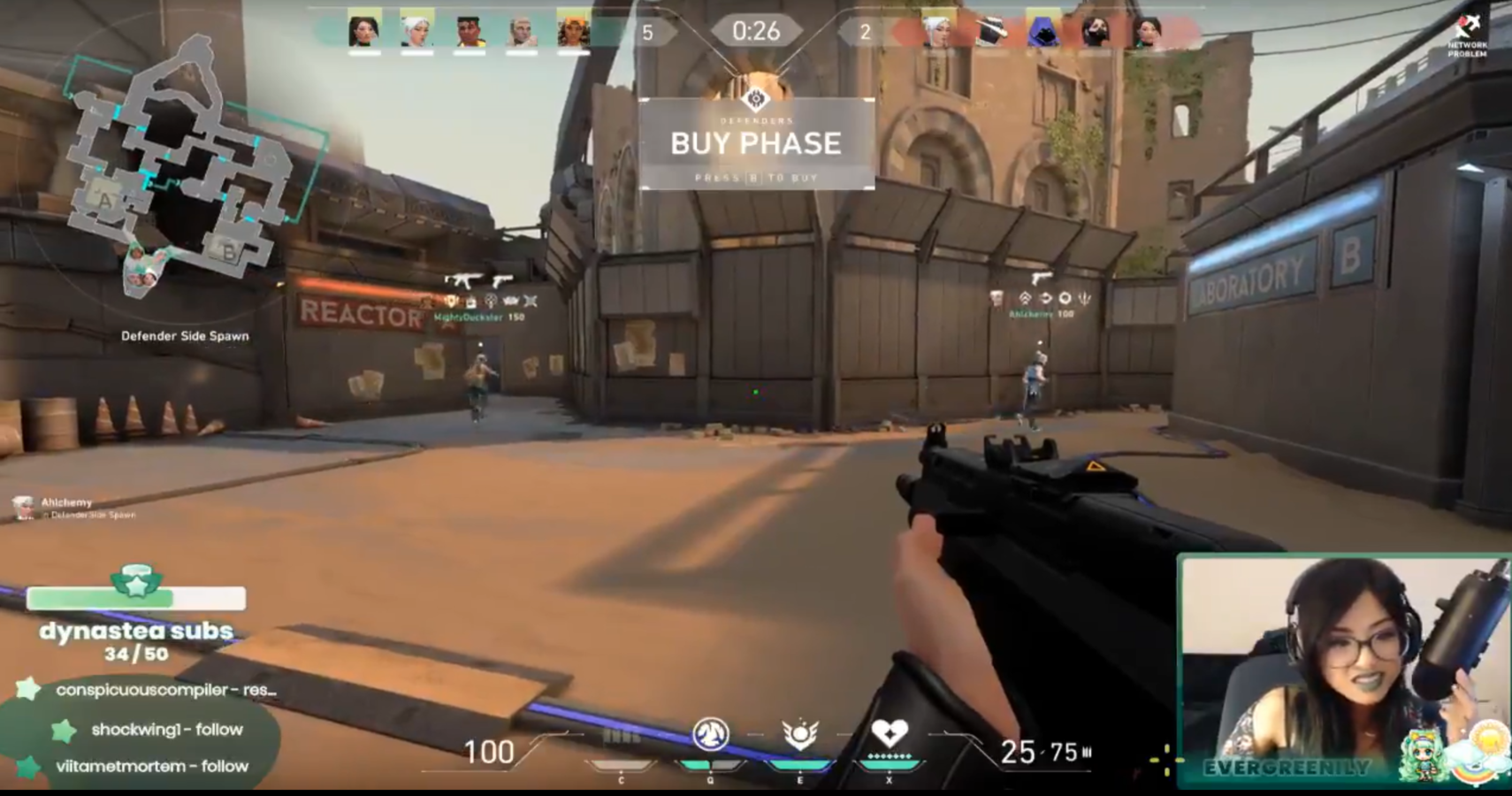VALORANT has only been in closed beta since April 7th, but the new game has already been host to rampant sexual harassment. Riot is currently focusing efforts on working to eliminating ways to cheat in game and get it competition ready, but reports from at least two riot employees, Aenia and Greenily, show that sexism and harassment are problems Riot needs to face as well.
Greenly says that harassment in multiplayer games is commonplace and her routine is to be quiet and ignore, as to avoid getting further responses, whenever possible. She posted a clip of her live stream of VALORANT, where she was getting harassed by someone she guessed to be a 16-year-old boy. He continues on to lie about his age when she tries to gently tell him he’s too young to be talking to her in that manner, indicating she did not appreciate his rude comments. After a brief moment the players starts saying "Hey Babe" repeatedly to frustrate and distract Greenly. During this distraction, she dies in-game.
Ana Donlon, self-proclaimed as “Executive "Decider of Things" on VALORANT” replied to Greenly and her tweet:
Another Riot employee who works directly for VALORANT, Aeneia, was mistaken for a female gamer and was told to "save [their] ideas for the kitchen." They point out that this behavior is taught by our culture, and was enabled by the three other players who heard the harassment and did nothing to intervene.
Many players commented that this is an easy solution: hit the mute button and the problem goes away. The problem with this is two-fold: first of all, by muting, you are losing the tool of communication with other players. This changes the gameplay for populations that are likely to be the target of harassment. Secondly, by making people experiencing harassment mute their harassers, it puts the work on the target to fix the problem rather than stopping the problem or punishing the attacker. It also doesn't protect people from experiencing harassment in the first place.
Sexism in gaming culture is nothing new, and frankly harassment, in real life or online, is not surprising to any feminine presenting person. VALORANT does have an in-game reporting system, but just like real-life reporting systems, it is not yet sufficient. Systems to prevent are only as good as the weakest link in the system. If you report harassment, the harasser has to be found guilty, and there has to be a strong repercussion for people saying foul things or they won’t be motivated to stop. There is also the risk of social harassment from other sources: when someone reports behavior, they are often told to “suck it up” in order to prevent tarnishing the harasser’s reputation, or the reporter is otherwise not believed.
It is great that people in high positions at Riot are working to fix the problem of online harassment. As Donlon says, they are working to find a better long term solution, but as long as there are misogynistic people playing games and not experiencing consequences for the harm they cause, they will continue.

